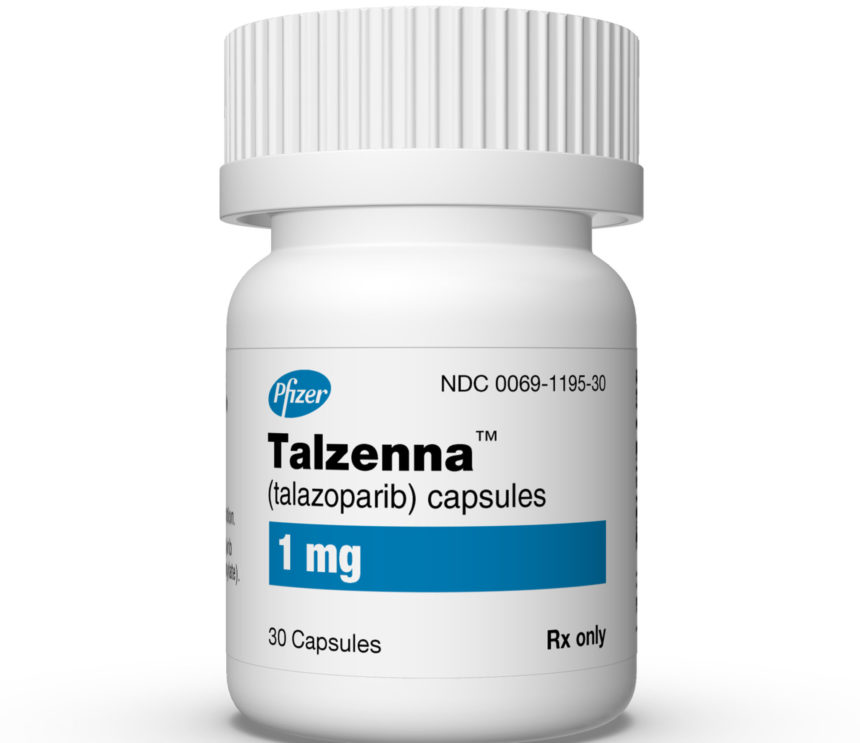Keytruda (pembrolizumab) vs Talzenna (talazoparib)
Keytruda (pembrolizumab) vs Talzenna (talazoparib)
Keytruda (pembrolizumab) is an immunotherapy drug that works by helping the immune system to detect and fight cancer cells, commonly used in various types of cancers including melanoma, lung, and head and neck cancers. Talzenna (talazoparib) is a PARP inhibitor designed to kill cancer cells by preventing them from repairing their DNA, and it is specifically indicated for certain patients with deleterious or suspected deleterious germline BRCA-mutated, HER2-negative locally advanced or metastatic breast cancer. When deciding between Keytruda and Talzenna, it is crucial to consider the type of cancer, the presence of specific genetic mutations, and the overall health and treatment goals of the individual, as these factors will influence which medication is the most appropriate choice.
Difference between Keytruda and Talzenna
| Metric | Keytruda (pembrolizumab) | Talzenna (talazoparib) |
|---|---|---|
| Generic name | Pembrolizumab | Talazoparib |
| Indications | Various types of cancers including melanoma, lung cancer, head and neck cancer, Hodgkin lymphoma, and more. | Germline BRCA-mutated, HER2-negative locally advanced or metastatic breast cancer. |
| Mechanism of action | Programmed death receptor-1 (PD-1) blocking antibody. | Poly (ADP-ribose) polymerase (PARP) inhibitor. |
| Brand names | Keytruda | Talzenna |
| Administrative route | Injection (intravenous) | Oral (capsule) |
| Side effects | Fatigue, musculoskeletal pain, decreased appetite, pruritus, diarrhea, nausea, rash, pyrexia, cough, dyspnea, constipation, pain in extremity, and headache. | Anemia, neutropenia, thrombocytopenia, fatigue, nausea, headache, diarrhea, vomiting, alopecia, decreased appetite, constipation, and more. |
| Contraindications | Individuals with severe hypersensitivity to pembrolizumab or any of its excipients. | Individuals with known hypersensitivity to talazoparib or any of its excipients. |
| Drug class | Anti-PD-1 monoclonal antibody | Poly (ADP-ribose) polymerase inhibitor |
| Manufacturer | Merck & Co. | Pfizer Inc. |
Efficacy
Keytruda (Pembrolizumab) Efficacy in Breast Cancer
Keytruda, known generically as pembrolizumab, is an immune checkpoint inhibitor that has been studied for its efficacy in treating certain types of breast cancer. Specifically, it has shown promise in treating triple-negative breast cancer (TNBC), which is a more aggressive and difficult-to-treat form of the disease. Pembrolizumab works by blocking the PD-1 pathway, which some cancer cells use to protect themselves from the immune system's attacks. By inhibiting this pathway, Keytruda can help the immune system to detect and fight cancer cells more effectively.
Clinical trials have evaluated Keytruda in combination with chemotherapy for patients with locally recurrent unresectable or metastatic TNBC whose tumors express PD-L1. The results have indicated that the combination can lead to improved progression-free survival compared to chemotherapy alone. This has led to the approval of Keytruda in combination with chemotherapy for patients with PD-L1-positive TNBC in certain clinical settings.
Talzenna (Talazoparib) Efficacy in Breast Cancer
Talzenna, or talazoparib, is a PARP inhibitor used in the treatment of breast cancer. It is specifically indicated for patients with germline BRCA-mutated, HER2-negative locally advanced or metastatic breast cancer. Talazoparib exploits the concept of synthetic lethality by targeting PARP enzymes, which are involved in DNA damage repair. In patients with BRCA mutations, the DNA repair pathways are already compromised, and the inhibition of PARP further prevents cancer cells from repairing their DNA, leading to cell death.
The efficacy of Talzenna was demonstrated in a pivotal phase III clinical trial known as EMBRACA. In this study, talazoparib significantly prolonged progression-free survival compared to standard chemotherapy in patients with germline BRCA1/2-positive, HER2-negative advanced breast cancer. The results supported the use of Talzenna as a preferred monotherapy in this patient population, offering a targeted treatment option with a favorable efficacy profile.
Regulatory Agency Approvals
Keytruda
-
European Medical Agency (EMA), European Union

-
Food and Drug Administration (FDA), USA

-
Health Canada

-
Therapeutic Goods Administration (TGA), Australia

-
Medsafe (NZ)

Talzenna
-
European Medical Agency (EMA), European Union

-
Food and Drug Administration (FDA), USA

-
Therapeutic Goods Administration (TGA), Australia

Access Keytruda or Talzenna today
If Keytruda or Talzenna are not approved or available in your country (e.g. due to supply issues), you can access them via Everyone.org.
How it works

Make an enquiry
Choose the medicine you want to buy, answer a couple of questions, and upload your prescription to speed things up. We’ll get back to you within 24 hours.


Make an enquiry
Choose the medicine you want to buy, answer a couple of questions, and upload your prescription to speed things up. We’ll get back to you within 24 hours.


Breeze through the paperwork
We'll guide you through the required documents for importing unapproved medicine, ensuring you have all the necessary information.


Get a personalized quote
We’ll prepare a quote for you, including medicine costs and any shipping, administrative, or import fees that may apply.


Receive your medicine
Accept the quote and we’ll handle the rest - sourcing and safely delivering your medicine.

Some text on this page has been automatically generated. Speak to your physician before you start a new treatment or medication.
Let's talk
If you have any questions, call us or send us a message through WhatsApp or email:
Contact us




